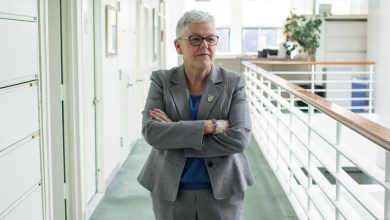A Sneaky Form of Climate Obstruction Hurts Pension Funds

In several Republican-led states, the officials who oversee pension funds for millions of state workers are being told, or may soon be told, to ignore the financial risks associated with a warming world. There’s something distinctly anti-free market about policymakers limiting investment professionals’ choices — and it’s putting the retirement savings of millions at risk.
The Texas comptroller, Glenn Hegar, recently announced that 10 financial firms and 348 funds could be barred from doing business with the state’s pension plans because they appeared to consider environmental risks in their investment decisions regarding the fossil fuel industry. The day before, Gov. Ron DeSantis of Florida announced a similar move. Other states, including Idaho, Louisiana and West Virginia, have either taken or are thinking of taking similar actions, which amount to ideological litmus tests that will likely result in lower returns for pensioners.
These are short-sighted political moves from a party that typically champions the free market, and that is why 12 other state treasurers and New York City’s comptroller recently joined me to urge that these policies be reversed. The people who will likely suffer are the public servants whose retirement money won’t be managed for a world being disrupted by a rapidly changing climate.
As Oregon’s state treasurer, I oversee pension funds. These funds are made up of the retirement savings of hundreds of thousands of teachers, police officers, firefighters and other public servants. It is my duty to invest their savings in a way that maximizes returns over the long term so that Oregon can fulfill the promise it made to provide them with a secure retirement. The world is shifting toward clean energy, and we need to take the risks and opportunities of that transition into account as we manage retirement funds for people who will need them 10, 20 or 30 years out.
Climate change is already affecting the profitability of entire industries in which my fund is invested. Fires, floods and droughts are snarling supply chains and destroying property. It is clear that we need to consider which of our pension fund assets are most exposed.
For people in my position to actively avoid information about such profound risks is a breach of their duty as a fiduciary. For policymakers to mandate willful ignorance about an entire category of risk and block private companies from doing business with their states because they might not share the same ideology is un-American.
If you still don’t believe that the financial risks are real — and that pension funds should be mitigating them — then consider the actions of comparable institutions with enormous balance sheets and investment horizons that span decades. This year, the U.S. Navy released a climate strategy that aims to help its bases to adapt to rising seas and other changes. Insurers continually strive to understand the evolving risks posed to properties in areas increasingly prone to flooding and wildfire. Oil and gas companies go through “scenario planning” exercises to investigate how severe weather and climate change may hurt future business.
Unlike Texas and Florida, these institutions are committed to considering how environmental risks will affect their bottom line now and in the future.
Why is it that the elected officials in these states are so far out of sync? The answer is politics. These state officials are putting their political views before the best interests of the firefighters and teachers they serve.
A recent investigation in The Times found that Republicans are “weaponizing public office against climate action.” They claim that the asset managers who take climate change into consideration when deciding where to invest are boycotting the fossil fuel industry. That’s hardly the case — many of the firms being targeted are still major backers of oil and gas. BlackRock, one of the firms singled out by Texas, is the second-largest investor in both Exxon Mobil and ConocoPhillips.
Texas’ anti-free market legislation is also costing taxpayers. Texas cities may incur as much as $532 million in higher interest costs in less than a year. These laws ultimately mean that there are fewer financial institutions competing to underwrite municipal bonds.
I encourage those charged with oversight of state funds and pension funds to return to the core values we all share: Transparency and accountability are good for investors. Markets should be free from excessive manipulation. Prudent investors should be allowed to weigh long-term risks.
If our nation’s military leaders, insurance officials and oil executives all factor climate risk into decisions, then hard-working firefighters and teachers should be given the same courtesy. The states they serve shouldn’t be playing politics with their retirement.
Tobias Read is the Oregon state treasurer.
The Times is committed to publishing a diversity of letters to the editor. We’d like to hear what you think about this or any of our articles. Here are some tips. And here’s our email: [email protected].
Follow The New York Times Opinion section on Facebook, Twitter (@NYTopinion) and Instagram.




